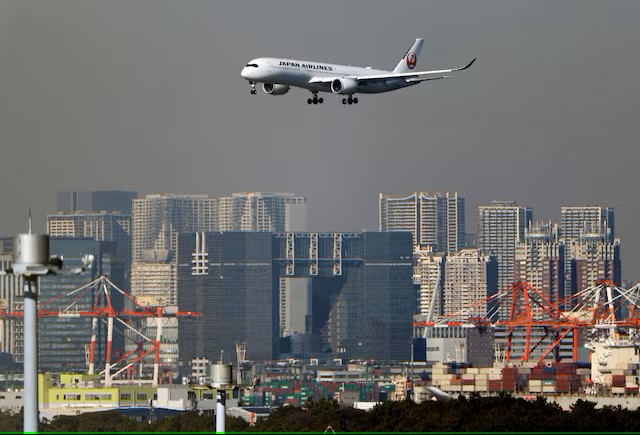
Cosmo to Initiate Japan's First Sustainable Aviation Fuel Production in April
Cosmo Energy Holdings plans to commence the production of sustainable aviation fuel in Japan this coming April, aiming to significantly reduce carbon emissions in the aviation sector.
Cosmo Energy Holdings is preparing to roll out Japan’s inaugural domestic production of sustainable aviation fuel (SAF) starting in April. This initiative aligns with the country’s objective of replacing 10% of jet fuel with greener alternatives.
As the third-largest refiner in Japan, Cosmo will manufacture SAF from used cooking oil at its Sakai refinery located in western Japan. “Our goal is to boost SAF supply to 300,000 kilolitres by 2030 through domestic production and imports,” said Takeshi Takada, the general manager of new business development.
Japanese refiners are mandated to provide SAF equivalent to 10% of their aviation fuel sales by the year 2030, as Japan seeks to address climate change and comply with international efforts to lower carbon dioxide emissions from aircraft.
According to a company official, the production of 300,000 kl (1.89 million barrels) would suffice to satisfy 10% of Cosmo’s jet sales. The company aims to produce 30,000 kl of SAF annually at the Sakai facility, supply 150,000 kl from its Sakaide facility using bioethanol, and import 120,000 kl from Thailand’s Bangchak and other Asian suppliers, Takada noted.
Despite facing challenges in cost reduction, securing raw materials, and establishing customer bases, the refiner hopes to gain a competitive edge by launching production and sales ahead of its rivals.
The Sakai project is targeting a production of 24,000 kl in fiscal 2025, considering maintenance, and has already secured agreements with major customers, including Japan Airlines (JAL), ANA, and DHL.
Future ambitions include starting SAF production at the Sakaide facility by around 2029, with a final investment decision anticipated in fiscal 2026. Both projects are benefiting from government subsidies, which cover approximately half of the capital expenditures.
“Japan’s subsidy scheme is at a medium level compared to global standards… Countries will compete to offer attractive subsidy schemes for SAF deployment to maintain hub airport status,” remarked Takada.
Source: Reuters
